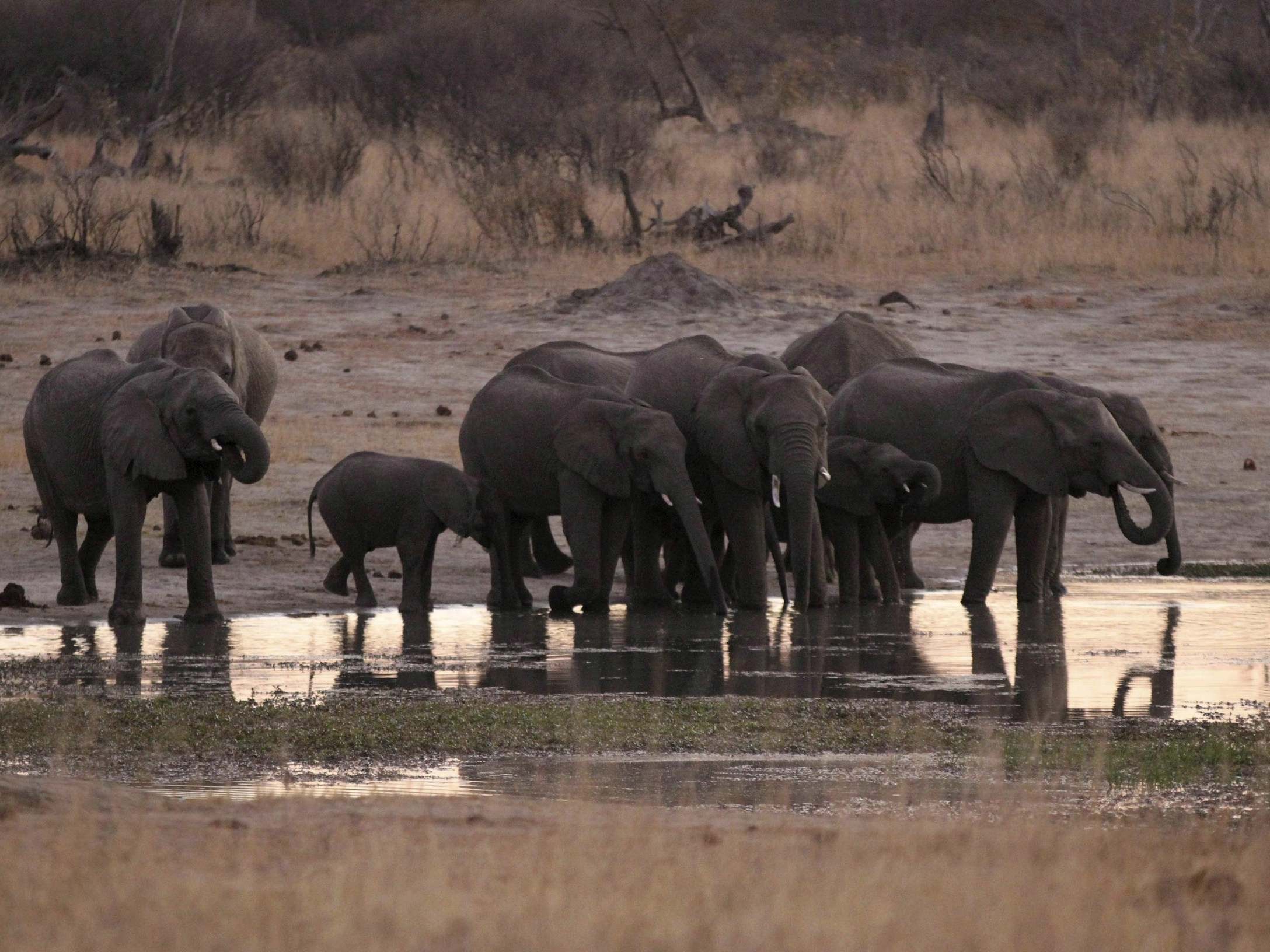More than 50 elephants starve to death amid severe drought in Zimbabwe
‘Situation is dire’, say authorities in overcrowded national park

Your support helps us to tell the story
From reproductive rights to climate change to Big Tech, The Independent is on the ground when the story is developing. Whether it's investigating the financials of Elon Musk's pro-Trump PAC or producing our latest documentary, 'The A Word', which shines a light on the American women fighting for reproductive rights, we know how important it is to parse out the facts from the messaging.
At such a critical moment in US history, we need reporters on the ground. Your donation allows us to keep sending journalists to speak to both sides of the story.
The Independent is trusted by Americans across the entire political spectrum. And unlike many other quality news outlets, we choose not to lock Americans out of our reporting and analysis with paywalls. We believe quality journalism should be available to everyone, paid for by those who can afford it.
Your support makes all the difference.At least 55 elephants have died in Zimbabwe’s largest national park amid the country’s worst drought in recent years.
The lack of food and water has meant elephants have increasingly wandered into inhabited areas, according to the Hwange National Park authorities.
“The situation is dire. The elephants are dying from starvation and this is a big problem,” said Zimparks spokesman Tinashe Farawo.
He said the animals had died near water holes dotted around the park, a sign that they had travelled long distances to access water.
Investigations showed that at least 55 elephants had died from lack of food and water in the park, which holds the biggest elephant herd of 50,000 animals – three times the park’s capacity.
Mr Farawo also said due to overcrowding of the elephants there was “massive destruction” of vegetation in Hwange, which were straying into villages near the game park, increasing human-wildlife conflict.
More than 200 people have died from elephant attacks in the past five years, according to Zimparks.
The agency said it had been planning to provide the elephants with more water by drilling more boreholes in Hwange because some existing ones had dried up, but it lacked the money, said Mr Farawo. The agency does not get funding from government.
Zimbabwe has in the past sold baby elephants to China saying it needed the money for conservation in Hwange.
In 2016, Zimbabwe put its wild animals up for sale, saying it needed buyers to step in and save the beasts from another devastating drought.
Despite winning support from neighbours Botswana, Namibia and South Africa, Zimbabwe failed to lobby the Convention on International Trade in Endangered Species (CITES) to lift a ban on ivory trade at a meeting in August.
Zimbabwe says its ivory stockpile is worth $300m (£230m), money it can use for conservation.
The El Nino-induced drought has cut maize output by more than half, leaving a third of the human population also needing food aid.
Additional reporting by Reuters
Join our commenting forum
Join thought-provoking conversations, follow other Independent readers and see their replies
Comments